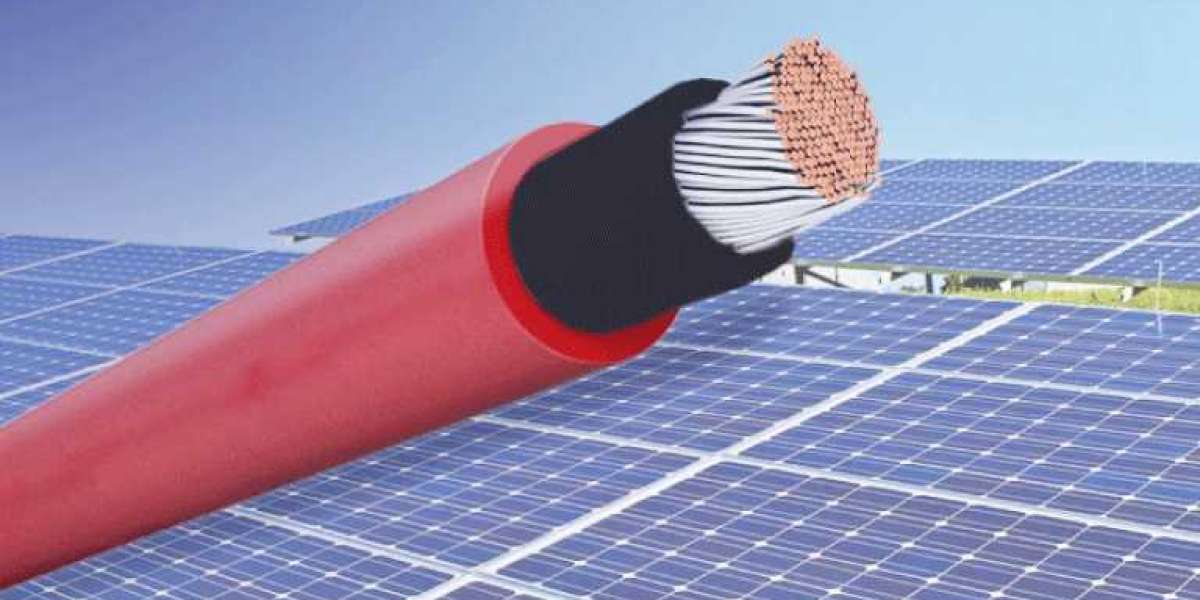In the evolving landscape of electrical infrastructure, the demand for quality materials like power cables and AC solar wires is growing significantly in Pakistan. These components are essential for ensuring efficient energy transmission, whether for traditional electrical systems or modern solar energy setups. This article will delve into the factors influencing power cable prices in Pakistan and provide insights into AC solar wires in Pakistan, highlighting their importance and applications.
Overview of Power Cables in Pakistan
Power cables are fundamental components in electrical systems, designed to carry electrical current efficiently from one point to another. In Pakistan, the variety of power cables available caters to different needs, from residential installations to industrial applications.
Types of Power Cables
PVC Insulated Cables:
These cables are widely used due to their affordability and versatility. They are suitable for indoor installations and are often used in residential wiring.XLPE Insulated Cables:
Cross-linked polyethylene cables are known for their high thermal resistance and durability. They are ideal for outdoor installations and high-voltage applications.Aerial Bundled Cables (ABC):
These are used in overhead power lines, providing a safer and more reliable solution for power distribution.
Factors Affecting Power Cable Prices in Pakistan
Material Quality: The type of materials used in manufacturing power cables significantly impacts their price. Higher quality materials may lead to higher costs but offer better durability and performance.
Specifications: The size, insulation type, and voltage rating of the cable also play crucial roles in determining the price. For instance, cables designed for high-voltage applications are generally more expensive.
Market Demand: Seasonal demand and changes in the construction and electrical sectors can influence prices. Increased infrastructure projects often lead to higher demand for power cables.
Current Power Cable Prices in Pakistan
As of now, the power cable prices in Pakistan vary widely based on the type and specifications of the cables. Here are some approximate price ranges:
- PVC Insulated Cables: PKR 100 - 250 per meter
- XLPE Insulated Cables: PKR 250 - 500 per meter
- Aerial Bundled Cables: PKR 300 - 600 per meter
These prices can fluctuate based on the manufacturer, quality, and specific requirements of the installation.
Understanding AC Solar Wires in Pakistan
With the rising popularity of solar energy solutions in Pakistan, AC solar wires have become increasingly essential. These wires are designed to carry alternating current generated by solar panels, ensuring efficient energy transfer to inverters and electrical systems.
Importance of AC Solar Wires
Efficient Energy Transfer: AC solar wires are crucial for minimizing energy loss during transmission from solar panels to inverters.
Durability: These wires are typically designed to withstand outdoor conditions, including UV exposure and moisture, ensuring longevity.
Safety: Quality AC solar wires come with insulation that protects against short circuits and electrical faults.
Current Prices of AC Solar Wires in Pakistan
The price of AC solar wires in Pakistan can vary based on the gauge, material, and insulation type. Here are some approximate price ranges:
- 1.5 mm² AC Solar Wire: PKR 50 - 100 per meter
- 2.5 mm² AC Solar Wire: PKR 100 - 150 per meter
- 4 mm² AC Solar Wire: PKR 150 - 250 per meter
As with power cables, these prices are influenced by market demand, material quality, and supplier pricing strategies.
Comparing Power Cables and AC Solar Wires
While both power cables and AC solar wires are essential for energy transmission, they serve different purposes and are designed for specific applications. Understanding these differences can help in making informed purchasing decisions.
Application Differences
Power Cables: Primarily used in traditional electrical systems for power distribution and supply.
AC Solar Wires: Specifically designed for solar energy systems, facilitating the safe and efficient transfer of energy from solar panels.
Material and Design Differences
Power Cables: Often made with materials that prioritize flexibility and insulation for high voltage.
AC Solar Wires: Typically built to withstand environmental factors and provide optimal conductivity for solar applications.
FAQs About Power Cables and AC Solar Wires
1. What are the best types of power cables for home use?
For residential use, PVC insulated cables are often the most suitable due to their affordability and ease of installation. However, for high-demand areas, XLPE cables might be a better choice.
2. How do I choose the right size of AC solar wire?
Choosing the right size depends on the current rating of your solar system. It’s important to refer to the solar inverter specifications and the total distance from the solar panels to the inverter.
3. Are power cables weatherproof?
Not all power cables are designed for outdoor use. If you're installing cables outdoors, ensure they are rated for exposure to weather conditions.
4. What is the lifespan of power cables?
Typically, power cables can last anywhere from 20 to 30 years, depending on usage, installation quality, and environmental conditions.
5. How can I ensure the safety of my electrical installations?
To ensure safety, use quality materials, follow electrical codes, and consider hiring a qualified electrician for installation.
Conclusion
The landscape of electrical infrastructure in Pakistan is continuously evolving, and understanding the power cable prices in Pakistan and the significance of AC solar wires in Pakistan is essential for anyone involved in electrical installations or solar energy systems. By staying informed about current market trends and prices, you can make better decisions for your electrical needs, ensuring efficiency and safety in your projects.








